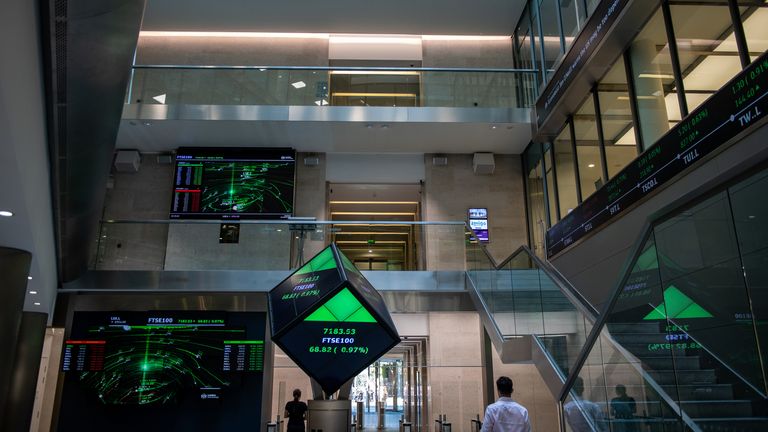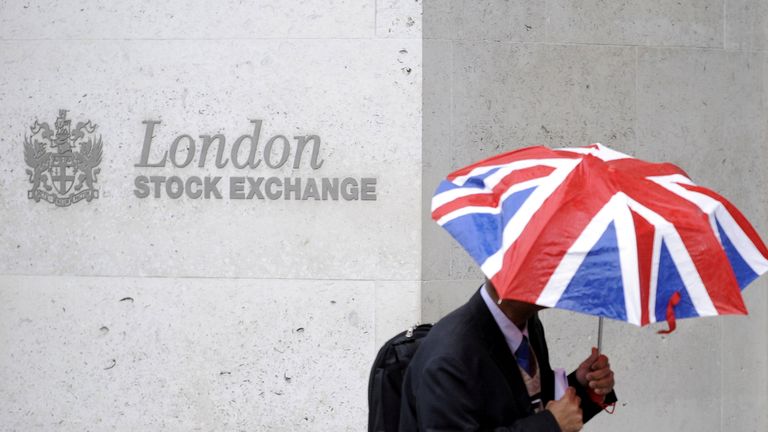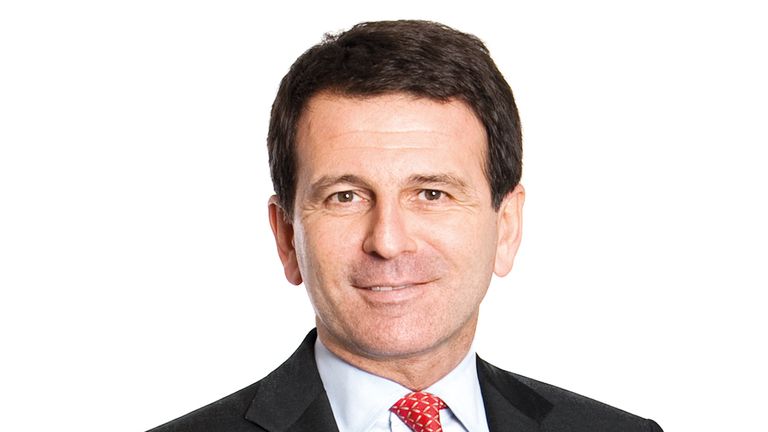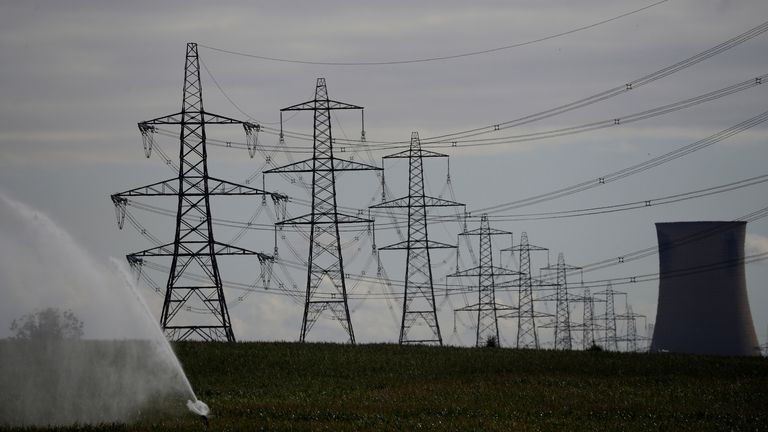Profits soar but shares plunge in Intertek – so what went wrong for the stock market darling?
Intertek is just the kind of business one would expect to see flourishing in the wake of COVID-19.
One of the lesser-known companies in the FTSE 100, in spite of having a stock market valuation of £9bn, it is the world’s biggest provider of quality assurance.
It employs nearly 44,000 people around the world in more than 1,000 offices and laboratories, providing assurance, testing, inspection and certification services to clients in sectors as wide-ranging as chemicals, food, healthcare, transportation, energy and construction.
On Friday morning it reported a 23% rise in pre-tax profits, to £186.3m, for the six months to the end of June.
However, despite what appeared to be a confident trading update, the company’s share price plunged by more than 9% at one point – wiping £849m from its stock market value.
So what went wrong?
In a word, it seems that expectations were just a little too high.
According to Oscar Val Mas, analyst at investment bank JP Morgan Cazenove, underlying earnings came in 7% lower than the market had been expecting and noted that the company had not changed its guidance to investors on profit margins for the year.
Steve Clayton, manager of the HL Select UK Growth Shares fund, which owns shares in Intertek, added: “These interim (results) were always going to be a tough act for Intertek to pull off.
“Demand has been highly volatile and only relatively recently translated into robust growth.
“But expectations for Intertek’s ability to translate any recovery into higher (profit) margins were high.
“So far, the group is lagging a little on the margin front, even though pretty much all parts of the business are now seeing demand bouncing back.
“Full year forecasts are likely to edge down, so no surprise to see the market pushing the stock lower.”
It is a rare setback for a company which, since going public in 2002 and joining the Footsie in 2009, has been a stock market darling.
It has a strong track record of growing both via takeovers and organically and also of predicting accurately what its customers will be demanding next.
Yet Andre Lacroix, the chief executive, insisted today he was confident demand will keep growing and said the company had “exciting growth opportunities” in the post-COVID-19 environment.
He told analysts today: “The total value of the global product assurance market is $250bn.
“Only $50bn of this is outsourced.
“Given the increased complexity in global corporations, we expect companies to continue to invest in new quality assurance areas to mitigate risk in the supply chain.
“These are what we call untapped quality assurance opportunities. And, indeed, COVID-19 has demonstrated there were major risks in the operations of our clients, which were not all mitigated.
“We expect the increased focus on quality assurance essentially in three areas moving forward – safer supply chain, better personal safety and sustainability.
“And this is why the industry is expected to grow faster post-COVID-19.”
Mr Lacroix, who joined in May 2015 from Inchcape – coincidentally the company from which Intertek was spun out of 25 years ago – said a recent survey of customers had revealed that 87% of them were planning to invest in the next two years to strengthen their supply chains.
He said that recent shortages in supply around the world – a good example currently being how shortage in chips is hampering car production around the world – had highlighted the need for supply chains to be more resilient.
He went on: “We need to ensure health, safety and well-being for employees and consumers. COVID-19 has raised the bar for health and safety in public and factories and workplaces forever.
“And they all face higher operational complexity, which is driven by the explosion of e-commerce and, of course, the ever-faster innovation cycle.”
One area where investors appear to be concerned, in the immediate term, is inflation.
Intertek employs a lot of specialist and highly-qualified people, such as scientists with PhDs, while it also has a policy of giving employees pay rises every year.
The expectation is that it will be seeing a high level of wage inflation.
Mr Lacroix insisted that this was not the case – pointing out that, when lots of businesses were undergoing large restructurings with a lot of redundancies during the pandemic, Intertek had deliberately not gone down that road.
He went on: “To basically reduce our capability and then start hiring again was going to be very costly and not the right thing from a customer service standpoint.
“So we are not seeing any issues with shortages of labour. We have to hire, we do it all the time, but we don’t have a huge gap in our capability.”
He said the company would be quite capable of returning to its pre-pandemic productivity level without having to take on more employees.
Subscribe to the Daily podcast on Apple Podcasts, Google Podcasts, Spotify, Spreaker
And there could be another big growth opportunity in coming years, too.
As Mr Clayton put it: “There is a quiet revolution going on in business, as firms start to put net zero plans into place.
“Intertek has a vital role to play here, with its ability to provide quality assurance of supply chains and audits of key environmental performance data.
“In short, there are whole new markets opening up for the business and the shares should increasingly recognise the potential of these opportunities, as well as the issues the existing business faces day to day.”
So, a tough day for Mr Lacroix, a former chairman and chief executive of Euro Disney.
But, once the dust has settled, he has plenty of opportunities to prove to sceptics that his company’s prospects are anything but Mickey Mouse.



